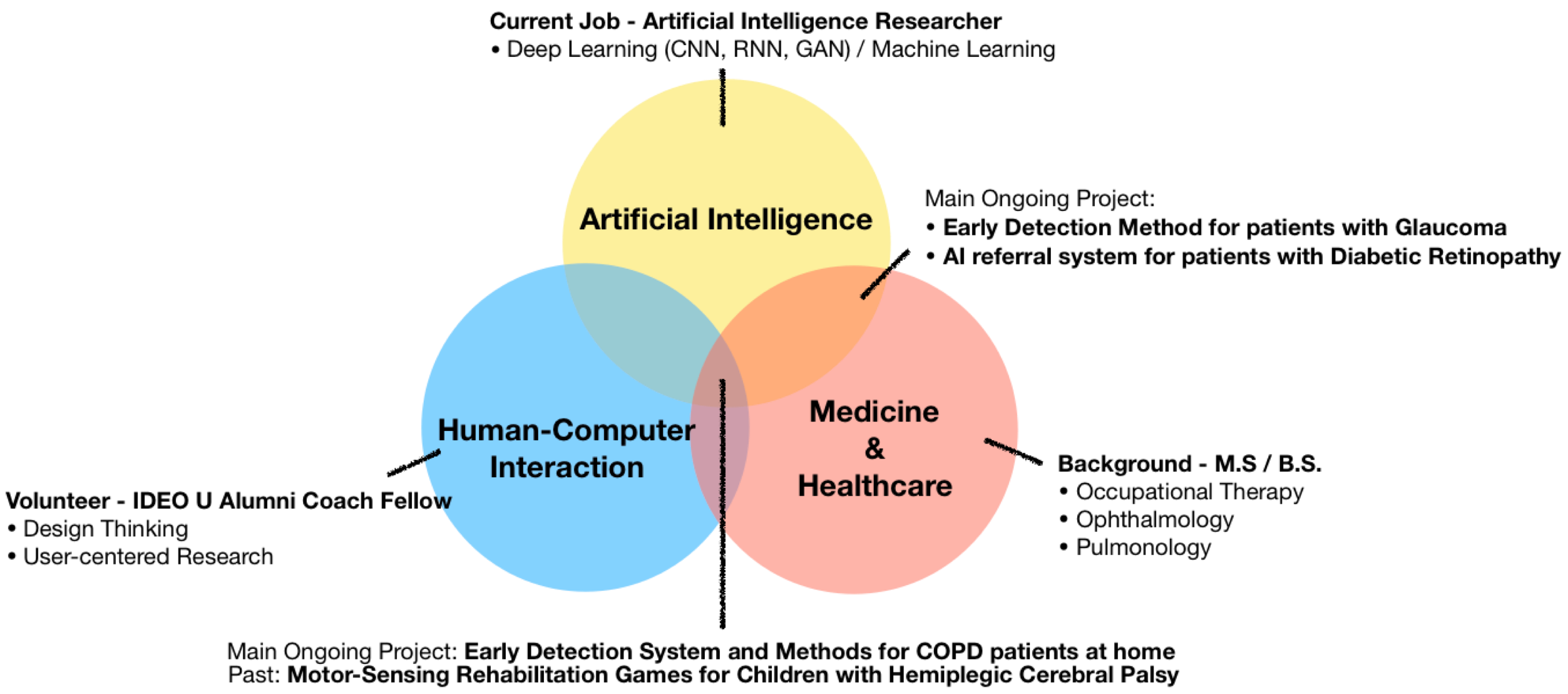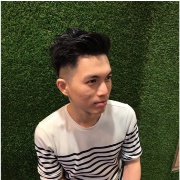About Me
Research Interests

My research interests lie in the area of Artificial Intelligence and Human-Computer Interaction, especially in the fields of medicine & healthcare. Currently, I lead two project, developing deep learning-based models for early-detection systems for patients with Glaucoma and patients with Chronic Obstructive Pulmonary Disease (COPD).
The state-of-the-art artificial intelligence (AI) algorithm, specifically deep learning, gradually emerges as the dominant algorithm for the development of clinical decision-making systems. As an AI researcher and also a medical professional by training, I have confidence in this transformative algorithm which would lead to next generation of medical and healthcare systems. However, the AI applications in medicine and healthcare to date have largely focused on one-way assistance for clinical decision making. That is, AI provides probabilities of how likely a certain disease or lesion exists in the given input. In order to fully transform medical and healthcare systems, it matters how medical professionals or patients could interact with AI in clinical decision-making process or even treatments, which would be a two-way communication between human and AI. Therefore, I believe that human-centered mindset would be the key toward breakthroughs of development of artificial intelligence (AI), especially in the field of medicine and healthcare.
My Career Journey
Immersed in multi-disciplinary skills, ranging from occupational therapy (OT)—the medical knowledges, design thinking (DT)—the steps toward innovation, and machine learning (ML)—data-driven techniques, I can approach problems not only with creative ideas but also with fast-prototyping. Specifically, for developing an acute-exacerbation monitoring system for COPD patients, it is my medical background and design thinking mindset leading me toward the unmet need from COPD patients; furthermore, it is my medical knowledge about lung sounds and practical skills in deep learning help me make prototypes efficiently and achieve a promising result quickly. That is to say, whenever I encounter a new problem, I would attempt to prototype my idea or solution and iterate first.
Along the journey in exploring the 3 fields mentioned above, I am fascinated by the usefulness of machine learning algorithms in medical fields, especially deep learning in analyzing medical images. Driven by this enthusiasm, I not only learned from the online courses but also gained experiences in deep learning by building up the model for classifying the severity of diabetic retinopathy with fundus images. In that practical experience, I managed to build the model reaching the score within the top-5 in the competition, which is based on this dataset of diabetic retinopathy. In addition to the experience in tuning models for classifying diabetic retinopathy, I transferred that experience into building up a convolution neural network (CNN) for detecting abnormal lung sounds from COPD patients and also initiated a project, dealing with the early detection of glaucoma by applying the deep learning techniques. To brief, I am capable of discovering problems where deep learning would take a part in solving them and also efficiently brining the models or potential solutions into life.
